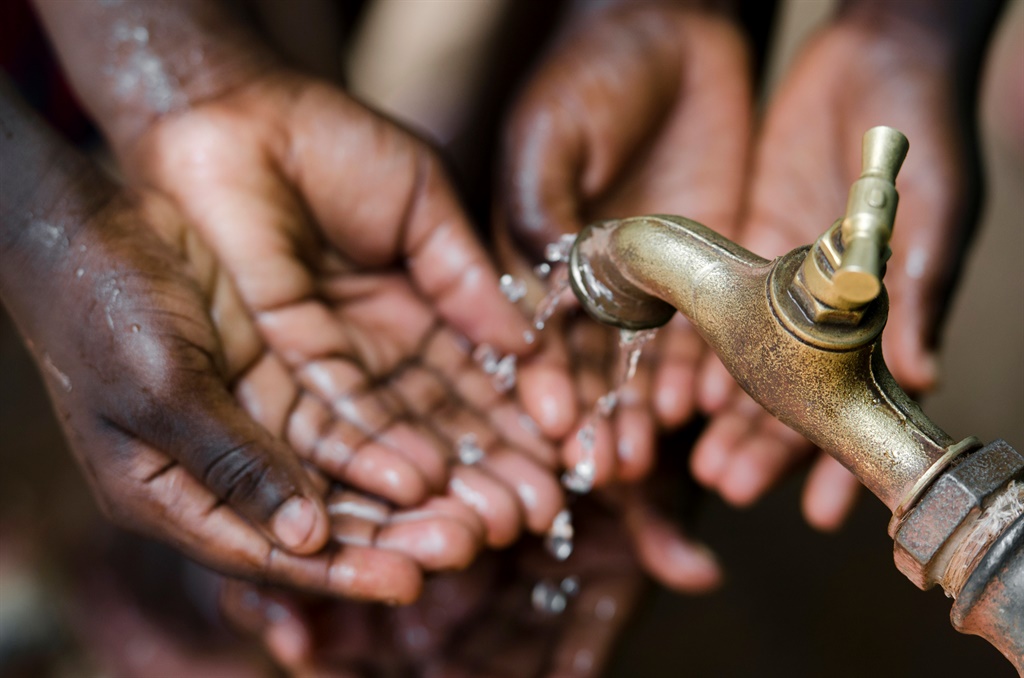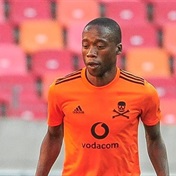
If we don't act now, we may not have water anywhere. That was the message from President Cyril Ramaphosa in his weekly newsletter to the nation on Monday morning.
Although Ramaphosa painted a bleak picture of the country’s water supply versus its demand, he also outlined the measures that the state was putting in place to try avoid a situation where water would not be available.
He highlighted the decade-long drought that had put “immense pressure on our water systems and has had a devastating impact on agriculture and communities, especially in the Eastern Cape, Northern Cape, Western Cape, Free State and Mpumalanga.”
Dam levels were currently on average about 58%, compared with 69% for the same time last year, he said.
“South Africa is a severely water-stressed country. We do not have mighty rivers that flow all season, like in other parts of Africa and the world,” he said.
The country’s average annual rainfall of 500mm compared with a global average of 860mm, placed it as the world’s 30th driest country.
“Our existing water systems are already over-exploited as usage increases rapidly due to population growth and as more homes get connected to water. Combine this with the worsening effects of climate change and we are clearly facing a dire situation.
“Unless we take drastic measures to conserve water sources and promote efficient use, water insecurity will become the biggest developmental and economic challenge facing this country. Our current energy challenges will seem small by comparison,” Ramaphosa said.
Although the state had made “substantial progress” in providing water to our citizens over the past 25 years, access to water and deteriorating water quality continued to fuel service delivery protests.
“Water security isn’t just integral to ensuring the well-being of our people, it is critical to our economy, and to our goal to accelerate industrialisation and expand mining and agriculture.
Mismanagement of water resources and corruption in the water sector has in no small part contributed to the situation we currently face.”
The measures that the government has put in place include:
• Instructing the water permit office to reduce the waiting time for water licences. “Significant progress has been made”.
• The National Disaster Management Centre is coordinating measures to alleviate the impact of the drought. Relief projects, like emergency borehole drilling and water tankers, are in place in affected areas, and demand is being managed through water restrictions and rationing.
• Municipalities are also installing bulk meters at reservoirs, repairing leaks and burst pipes, throttling water outlets at night to replenish reservoir supplies, and upgrading existing water treatment works.
• Successful public employment programmes, such as Working for Water, which eradicates alien invasive plants, and Working on Fire, are being scaled up.
• Providing R260 million in response to the drought and has offered support to farmers to purchase fodder, reticulate water for livestock and for dam desilting.
• Disaster Management is working with provinces and municipalities to see how they can reprioritise their budgets for relief and recovery.
• Ramaphosa also mentioned researching technology such as evaporation suppression, fog harvesting and cloud seeding.
• The country’s water infrastructure build is ongoing, and a water and sanitation master plan was released last week.
• To ensure future water security, South Africa will need funding of at least R126 billion for infrastructure. With existing freshwater supplies dwindling, the country will be focusing on projects that broaden our water resource mix. For example, Phase 1 of the uMkhomazi Water Project will prioritise the re-use of effluent, and projects like the Groot Letaba Water Augmentation Project in Limpopo and the Mzimvubu Water Project in the Eastern Cape will develop groundwater sources.
• Serious accountability and governance issues persist, whether it is in the building of infrastructure or at a municipal level, where water losses are mounting as a result of billing errors, unauthorised usage and outright theft. Accountability will be enforced as part of restoring integrity to the sector.
Recently, the Special Investigating Unit raided Lepelle Northern Water in connection with alleged corruption at the Giyani Water Project. The amount allegedly involved – R2 billion – is staggering, but unfortunately symptomatic of widescale tender corruption in these mega projects.
Read: A Merc for a bribe
“This is putting the entire nation’s water security at risk, and the ongoing SIU probes into irregularities in these projects will continue. As will the work of the Hawks’ National Clean Audit Task team probing municipalities, where corruption in the provision of tankering services has frequently been alleged,” said Ramaphosa.
He called on all South Africans to play their part.
• Domestic users must use water more sparingly and reduce their consumption;
• Municipalities must invest in water recycling technologies that save both water and money; and
• Industrial users must implement measures towards water use efficiency.
“We must manage our water sources wisely to meet the basic needs of communities and industry, as we drive social transformation so that we can achieve the South Africa we want,” said Ramaphosa.
 | ||||||||||||||||||||||||||
Get in touchCity Press | ||||||||||||||||||||||||||
| ||||||||||||||||||||||||||
| Rise above the clutter | Choose your news | City Press in your inbox | ||||||||||||||||||||||||||
| City Press is an agenda-setting South African news brand that publishes across platforms. Its flagship print edition is distributed on a Sunday. |




 Publications
Publications
 Partners
Partners








